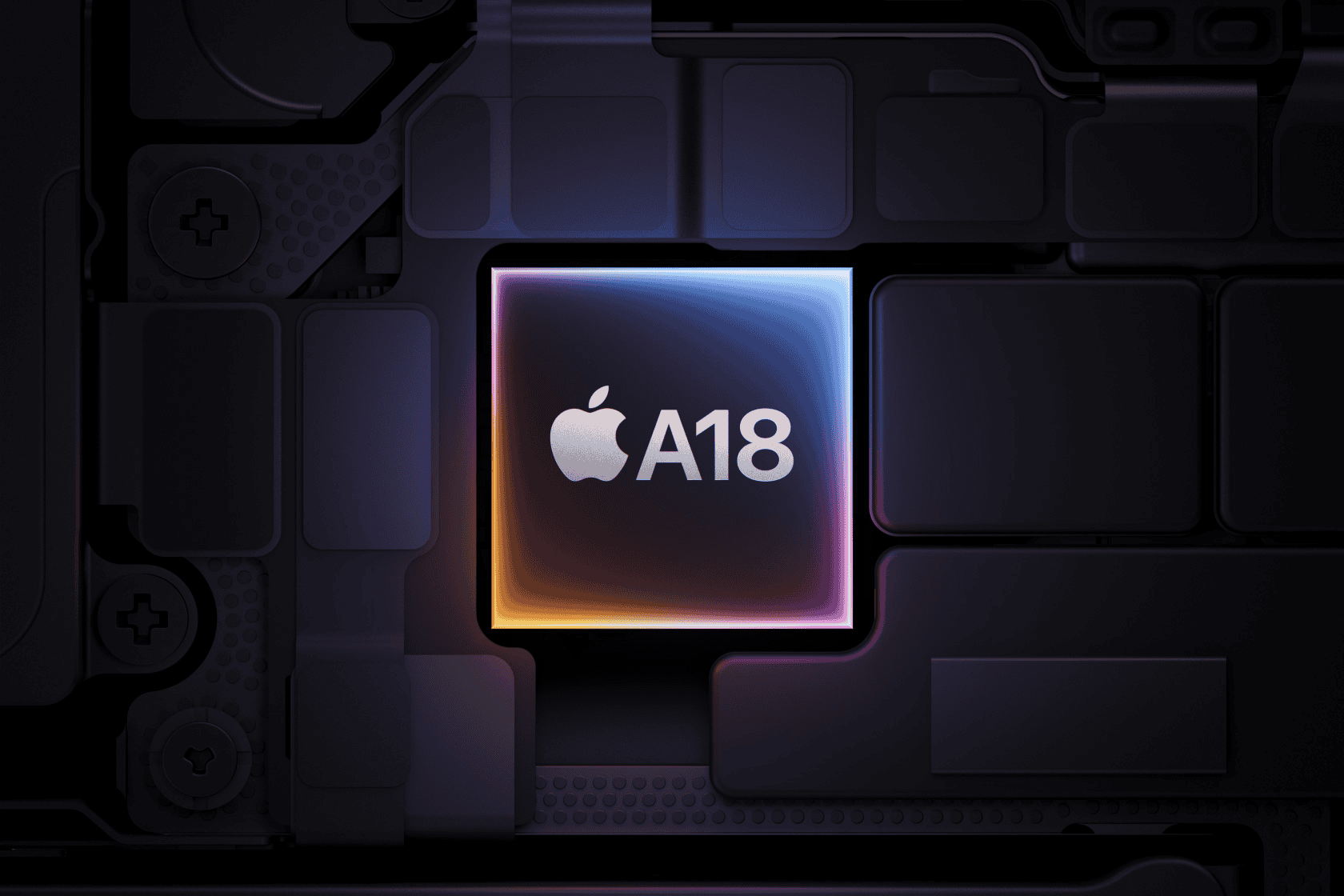Apple has introduced the A18 and A18 Pro chips, which bring significant improvements to the iPhone 16 lineup. These advanced processors utilize 3-nanometer technology to enhance both speed and efficiency. The A18 Pro outperforms the standard A18 chip in terms of AI and machine learning capabilities. These latest chips mark a major leap in mobile computing power. The A18 offers a notable performance boost for the standard iPhone models, while the A18 Pro sets a new standard for speed and efficiency in the Pro lineup.
The choice between the two ultimately depends on individual needs and budget, but both chips are designed to provide an exceptional user experience. Both chips feature 6-core CPUs with two high-performance cores and four efficiency cores, maintaining the same core count as last year’s models. However, the new chips deliver significantly improved overall speed due to their enhanced design. The A18 Pro stands out for its AI capabilities, boasting the ability to handle AI and machine learning tasks twice as fast as older chips, resulting in better on-device AI for iPhone 16 Pro users. While the regular A18 chip is still fast, it lacks some of the advanced features of the Pro version.

Power Play: A18 vs. A18 Pro – The Battle of Apple’s Newest Chips
Unleashing the Power Within
Both the A18 and A18 Pro are built on TSMC’s cutting-edge second-gen 3nm process, promising remarkable power efficiency and performance gains. The standard A18, powering the iPhone 16 and 16 Plus, is already a significant leap forward, delivering speeds up to 30% faster than its predecessor, the A16 Bionic. Its 16-core Neural Engine is twice as fast, boosting machine learning tasks.
The A18 Pro, found in the iPhone 16 Pro and Pro Max, pushes the boundaries even further. It’s 15% faster than the A17 Pro while using 20% less power, showcasing impressive efficiency. It boasts next-gen machine learning accelerators and blazing-fast USB3 speeds. Additionally, it supports ProRes video recording at 4K 120Hz in HDR, a boon for content creators.
Core by Core: CPU and GPU Showdown
Both chips feature 6-core CPUs, but the A18 Pro’s is clocked higher for even faster performance. The A18 Pro also packs a more powerful 6-core GPU, delivering a 20% speed boost over the A17 Pro’s GPU and up to 2x the ray tracing performance. In contrast, the A18 sports a capable 5-core GPU, offering 40% faster graphics compared to the iPhone 15.
Feature Face-Off
Beyond raw performance, the A18 Pro unlocks exclusive media features, including the aforementioned ProRes video recording. It also shines in hardware-accelerated ray tracing, enabling stunning visuals in supported games and apps.
Side-by-Side Specs
| Feature | A18 | A18 Pro |
|---|---|---|
| Process Node | 3nm | 3nm |
| CPU Cores | 6 | 6 |
| CPU Performance | Up to 30% faster than A16 | Up to 15% faster than A17 Pro |
| GPU Cores | 5 | 6 |
| GPU Performance | 40% faster than iPhone 15 | 20% faster than A17 Pro |
| Neural Engine | 16-core | 16-core |
| Neural Performance | 2x faster than A16 | Next-Gen Accelerators |
| ProRes Video | No | Yes |
| Ray Tracing | Supported | 2x faster |
| USB3 Speed | – | Faster |
| Power Efficiency | – | 20% less than A17 Pro |

Key Takeaways
- A18 and A18 Pro chips use new 3nm tech for better speed and efficiency
- A18 Pro offers 2x faster AI processing than previous iPhone chips
- Both new chips power big upgrades for the iPhone 16 series
Comparative Analysis of A18 and A18 Pro Chips
The A18 and A18 Pro chips offer key upgrades in performance, efficiency, graphics, and AI capabilities. These improvements impact everyday tasks and advanced applications for iPhone users.
Architecture and Performance
The A18 and A18 Pro share a similar 6-core CPU design. Both chips have two high-performance cores and four efficiency cores. This setup balances speed and power use.
The A18 Pro is faster than the A18. It can do tasks 15% quicker than last year’s A17 Pro chip. The A18 Pro also uses 20% less power for the same work.
Apple built these chips with a 3-nanometer process. This means they can fit more parts in a small space. The result is better speed and less power use.
Energy Efficiency and Battery Life
The new chips help iPhones last longer on a single charge. The A18 and A18 Pro use power wisely to save battery life.
The A18 Pro can do the same tasks as older chips but use less energy. This means your phone can run for hours without needing a charge.
The chips have special parts that manage power use. These parts turn off areas of the chip when they’re not needed. This saves even more power.
Graphics and Gaming Capabilities
Both chips have better graphics than before. The A18 Pro has the edge for gaming and other visual tasks.
The A18 Pro’s GPU is made for high-end games. It can show more details and smoother motion in games. This makes games look more real on iPhone screens.
These chips also help with tasks like photo and video editing. They can process images faster and with better quality.
AI and Machine Learning Enhancements
The A18 and A18 Pro have new parts for AI tasks. These help with things like face recognition and voice commands.
The A18 Pro’s Neural Engine is twice as fast as the one in the A16 chip. It can do 35 trillion operations per second. This means faster and smarter AI features.
These AI improvements help with many iPhone tasks. They make Siri smarter, photos look better, and apps run more smoothly.
Impact on iPhone 16 Series Models
The A18 and A18 Pro chips bring big changes to the iPhone 16 lineup. These new chips make the phones faster and better at tasks like gaming and video editing.
Differences Between Standard and Pro Models
The iPhone 16 and 16 Plus use the A18 chip. It has a 6-core CPU and 5-core GPU. The Pro models get the A18 Pro chip. This chip is even more powerful. It has extra features for pro users.
The A18 Pro can do more complex tasks. It’s better for things like 3D rendering and AI processing. The standard A18 is still very fast for everyday use. But it may not handle intense tasks as well as the Pro version.
Pro models also have more RAM. This lets them run more apps at once without slowing down.
Enhancements in iPhone 16 Pro and Pro Max
The A18 Pro chip brings big upgrades to the Pro models. It has a faster Neural Engine for AI tasks. The GPU is much better at ray tracing for realistic lighting in games.
These phones can now record ProRes video at higher quality. This is great for filmmakers and video pros. The extra power also means better photo processing.
The Pro Max model might have even more RAM than the regular Pro. This could make it the top choice for power users who need to run many apps at once.
Comparison with Previous Generations
The A18 chips are a big step up from older iPhones. They’re faster than the A17 Pro in the iPhone 15 Pro. And they’re way ahead of the A16 Bionic in the iPhone 14 Pro.
Games run smoother on the new chips. Apps open faster too. The A18 Pro has more cache memory which helps it work even quicker.
For most users the jump from an iPhone 14 or 15 will be very noticeable. Even simple tasks like web browsing feel snappier on the new chips.







